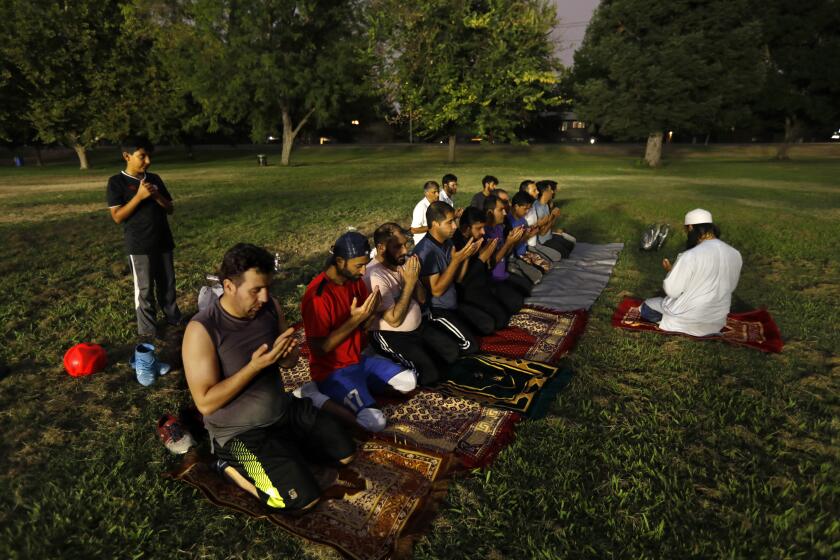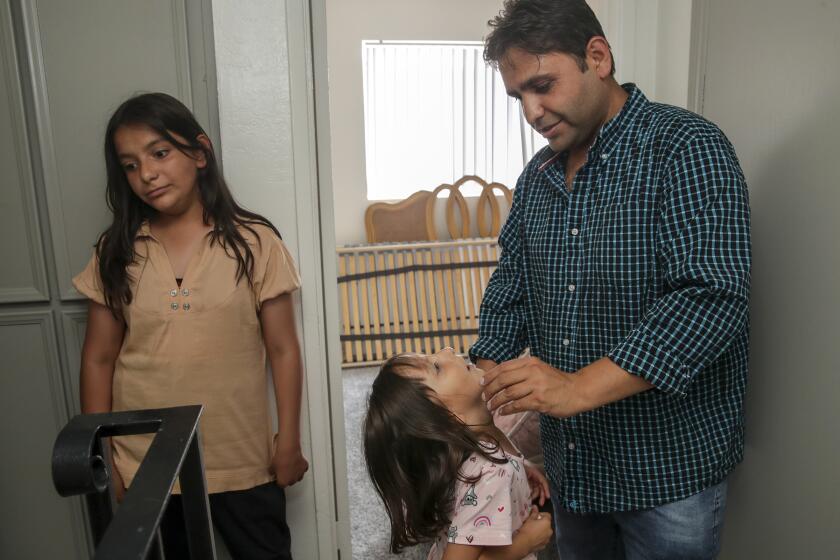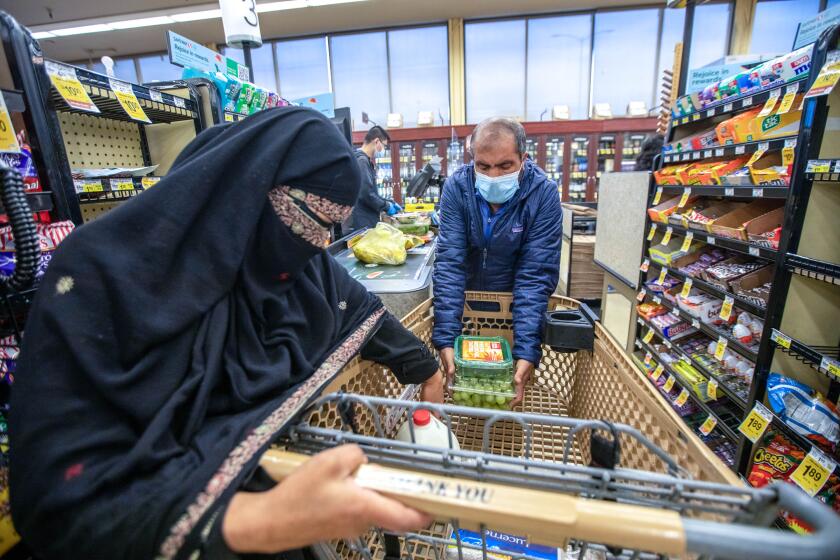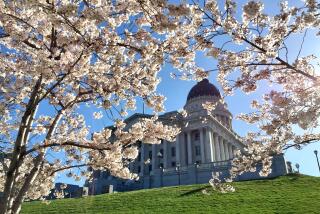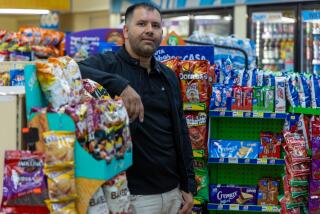Utah handling largest refugee resettlement in state history amid Afghan crisis
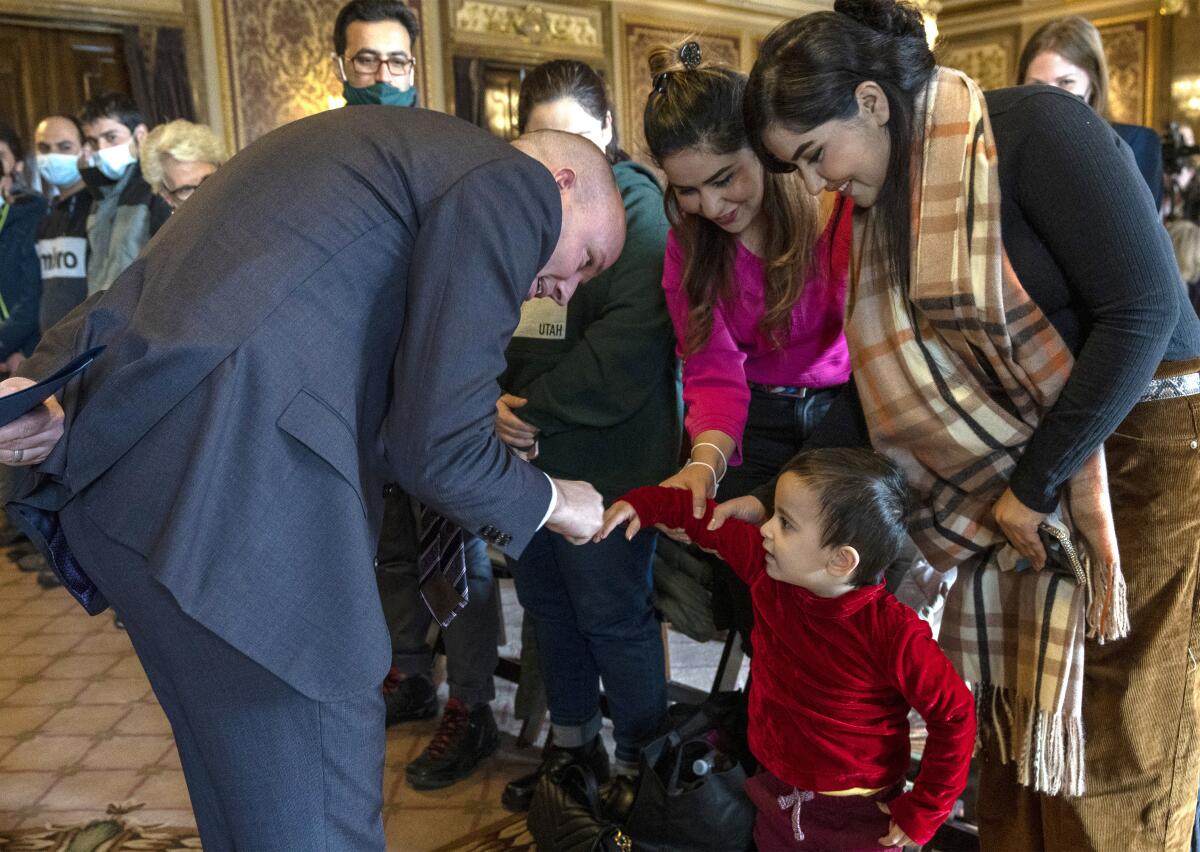
- Share via
SALT LAKE CITY — Ahmad Naweed Shirzad was working on a documentary north of Kabul, Afghanistan, last year with his co-workers when he learned the Taliban was taking power in provinces throughout the country.
As he and his crew traveled to Kabul to seek safety, Shirzad said they were ambushed by Taliban fighters who severely injured his arm and killed someone on his security detail, the Salt Lake Tribune reported. After Shirzad recovered in the hospital, he received a call from the documentary’s director telling him to head to the airport to catch a U.S. military flight out of Afghanistan.
Shirzad is one of the 60,000 Afghan immigrants who have resettled in the U.S. while a humanitarian crisis unfolds in Afghanistan. Of those, just over 900 Afghan refugees have moved to Utah — the largest refugee resettlement in the state’s history.
Utah Gov. Spencer Cox last week announced a plan to help assimilate Afghan immigrants, many of whom are deemed humanitarian parolees, in the state by offering them housing, education and work opportunities.
“Since the swift evacuation that happened in August of last year, a little more than 900 of the arrivals assigned to our state have now been resettled in Utah,” Cox said during a news conference in the Capitol.
“This group includes individuals who worked closely with and were critical allies to the U.S. government in Afghanistan,” he said. “They’re here with their families and their children to build a new life.”
As the Taliban solidifies control of Afghanistan, Californians with friends and family in the country are scrambling to help.
Cox said the state would offer workforce training to Afghan refugees that includes English and technology courses. He also said the state raised about $1 million for the Utah Afghan Community Fund, used to pay for legal support, cellphones and other necessities for Afghan arrivals.
“They arrived in Utah with permission to work and we’re helping them find good jobs,” Cox said. “We recognize the incredible talents, abilities and life experiences that these Afghans bring to our labor force. They will be wonderful additions in filling much-needed job vacancies in the state.”
Cox said he was worried about finding housing for Afghan refugees, especially as the state faces a housing shortage crisis. He called on Utahns to help secure 50 additional housing units for 220 individuals by the end of March.
“Making sure that we’re able to find permanent housing ... for these refugees remains a very high priority,” he said. “We’re still some short and that’s where we can still use a little help.”
Cox called resettling hundreds of refugees in the state an “enormous task,” but said the work was possible with the help of resettlement agencies like the Utah Refugee Services Office, the International Rescue Committee and Catholic Community Services.
After leaving Afghanistan in August, Shirzad spent time in Qatar and at a U.S. military base before settling in Utah in December of last year.
Sayed Omer Sadat thinks about what would have happened to his three daughters had the Taliban seized him because of his work for the U.S. military.
“I feel very safe here,” Shirzad said through a translator. “And I found Utah is a symbol of humanity, democracy and freedom by all means.”
Shirzad hopes that he can find employment in Utah making documentaries again.
Shirzad said his wife, two children and father are still living back in Afghanistan. He keeps photos of his children on his cellphone but he does not know if they will be able to move to the U.S. to join him.
‘We have to give back,’ the daughter of Vietnamese refugees in Washington state says of her community’s efforts to help families that fled Afghanistan.
Cox recently signed a bill sponsored by Democratic state Rep. Carol Spackman Moss that would allow humanitarian parolees to have access to an interpreter when obtaining a state driver’s license.
“We are grateful for the Legislature’s willingness to take on issues impacting not only Afghan arrivals but also refugees coming to the state,” he said.
Another bill that would serve Utah’s immigrant communities would allow individuals to take a driver’s license exam in a language besides English, Cox added.
More to Read
Sign up for Essential California
The most important California stories and recommendations in your inbox every morning.
You may occasionally receive promotional content from the Los Angeles Times.
